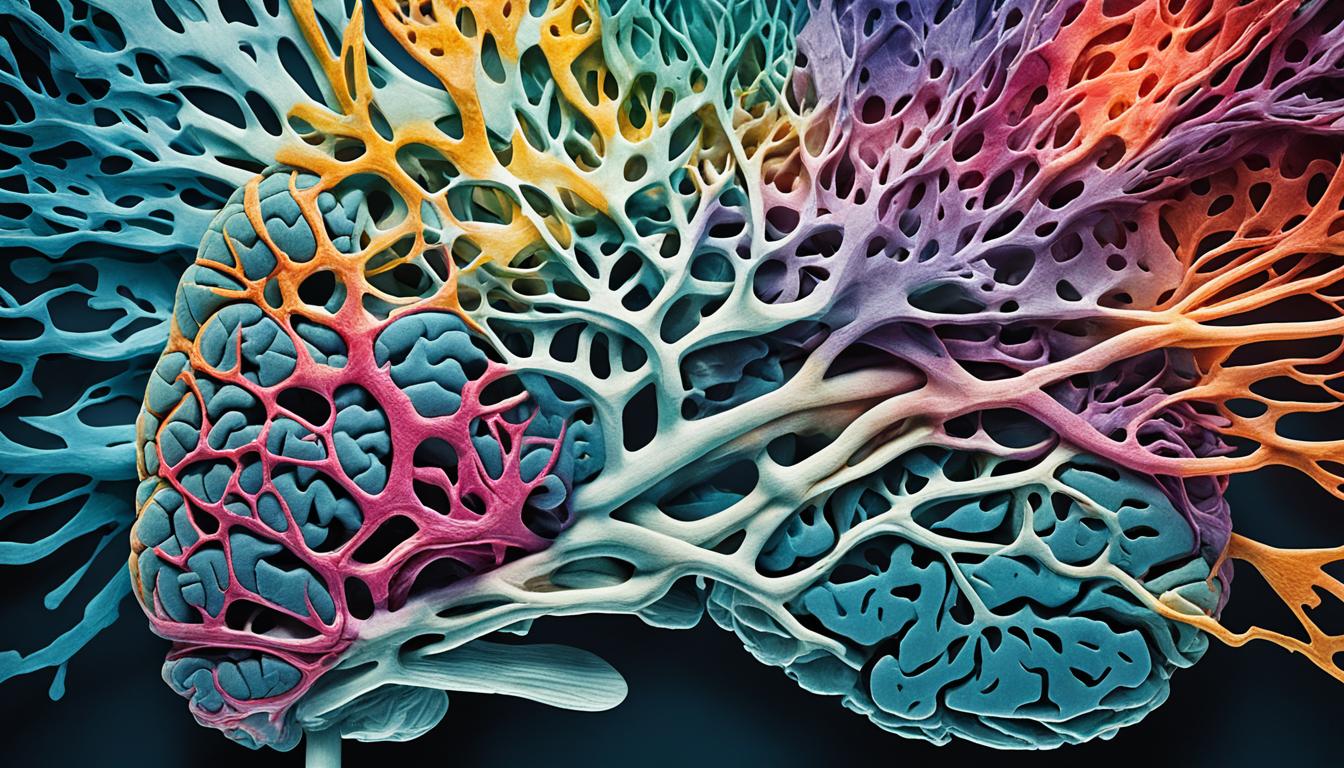Traumatic brain injury (TBI) happens from a strong hit to the head or body. Its effects can be light to severe, causing problems right away and over time. People with TBI might have headaches, feel sick, be tired, or have trouble talking or moving.
It stems from falls, car crashes, fights, sports accidents, or explosions. Children, teens, and the elderly face more risk of TBI. It can lead to seizures, brain infections, headaches, or trouble thinking.
Some doctors believe stem cell therapy can help treat brain injuries. It seems to help the brain heal and start working better again. In Thailand, this treatment is making progress for people with TBI.
Key Takeaways:
- TBI comes from strong hits to the head or body, with wide-ranging effects like headaches and thinking problems.
- It can be due to falls, car crashes, fighting, playing sports, or being in explosions.
- Doctors are looking into using stem cells to help people with brain injuries, with new findings from Thailand.
- TBI might cause problems like not being fully awake, having seizures, or struggling to think clearly.
- More study is needed to learn about TBI’s links to aging and find better treatments.
The Potential of Neural Stem Cells for Traumatic Brain Injury Repair
Recent studies show the hope of neural stem cells in treating traumatic brain injuries (TBI). These cells come from the brain’s neurogenic areas. They show they can help make new neurons and glial cells.
The endogenous neurogenesis process happens in parts of the adult brain. Areas like the subventricular zone (SVZ) and the dentate gyrus (DG) are key. Here, neural stem cells turn into needed cell types, helping to replace lost cells and boost recovery.
Scientists also look into neural transplantation as a way to fix brain injuries. By planting these cells, they can turn into the right cell types. They help by giving out essential chemicals and support, aiding the healing process.
By studying and using endogenous neurogenesis and neural transplantation, there’s hope to improve TBI treatment. Researchers work to use the healing power of these cells. Their goal is to better recovery and outcomes for TBI patients.
Advancements in Neural Stem Cell Research
Within recent years, science has learned a lot about how neural stem cells work in the brain. This knowledge has led to new ways to use these cells for TBI healing.
A key focus is understanding how certain pathways and substances control the behavior of neural stem cells. This deeper knowledge helps in designing actions to boost the creation of new neural cells.
Progress in creating supports for neural stem cells is also happening. Scientists can now make structures that help these cells live, grow, and join the brain’s injured areas. This support allows the cells to better heal the brain.
In short, neural stem cells offer much for TBI repair. Their regenerative abilities and the chance to use them through neural transplantation show great potential. Continued studies aim to find better treatments for TBI patients.
| Neural Stem Cells Benefits for TBI Repair | Neural Transplantation in TBI Repair |
|---|---|
| Regenerative roles in CNS injuries | Differentiation into specific cell types |
| Potential to generate new neurons and glial cells | Provision of neurotransmitters and trophic support |
| Integration into host tissue for regeneration | Facilitation of the regeneration process |
The Impact of Traumatic Brain Injury and Aging
Traumatic brain injury (TBI) can affect people long after the event, especially as they grow older. Researchers have found a link between TBI and conditions like cognitive decline, dementia, and diseases such as Alzheimer’s. These discoveries highlight the need to better understand how TBI affects the aging brain. They also stress the importance of creating strategies to help those with TBI lead better lives as they get older.
After TBI, the brain can shrink faster, leading to problems with memory and thinking. The injury disrupts how different parts of the brain talk to each other. This can cause a loss of brain tissue and hurt brain function.
TBI may also start a process where the brain swells and stays inflamed, even after the injury has healed. This can add to the risk of getting conditions like chronic traumatic encephalopathy (CTE).
Understanding how TBI affects the aging process is tricky, and we still need more studies. Scientists aim to figure out why TBI makes age-related brain issues worse. They hope this will lead to new ways to help people protect their brain health as they get older.
Helping TBI survivors have a better life as they grow older is very important. Research and developing interventions is key. Doing so can make a big difference in the long-term well-being of those living with TBI.

